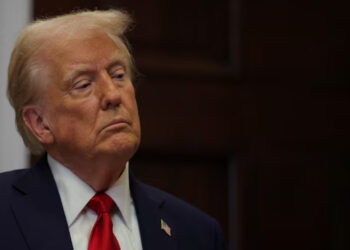BEIJING: Huawei Technologies and China’s top chipmaker SMIC have built an advanced 7-nanometer processor silicon chip to power its latest smartphone.
Huawei’s Mate 60 Pro is powered by a new Kirin 9000s chip that was made in China by Semiconductor Manufacturing International Corp (SMIC), a report by semiconductor research firm TechInsights said.
Huawei started selling its Mate 60 Pro phone last week. The specifications provided advertised its ability to make satellite calls but offered no information on the power of the chipset inside.
The processor is the first to utilize SMIC’s most advanced 7nm technology and suggests the Chinese government is making some headway in attempts to build a domestic chip ecosystem, the research firm said.
Buyers of the phone in China have been posting tear-down videos and sharing speed tests on social media that suggest the Mate 60 Pro is capable of download speeds exceeding those of top line 5G phones.
The phone’s launch sent Chinese social media users and state media into a frenzy, with some noting it coincided with a visit by US Commerce Secretary Gina Raimondo.
READ MORE: US bans gear from China’s Huawei, ZTE over security risk
China has produced a 5G smartphone using an advanced silicon chip on a scale of miniaturisation that was thought beyond its capabilities due to US-led export restrictions.
Despite being a manufacturer of 5G network equipment, Huawei was previously only able to launch limited batches of actual 5G phones using stockpiled chips.
Since 2019, the US has restricted Huawei’s access to chipmaking tools essential for producing the most advanced handset models, with the company only able to launch limited batches of 5G models using stockpiled chips.
In July, research firms said they believed Huawei was planning a return to the 5G smartphone industry by the end of this year, using its own advances in semiconductor design tools along with chipmaking from SMIC.
Huawei has been banned from providing 5G network equipment in numerous countries, including those of the Five Eyes security alliance, over national security concerns raised by its ties to the Chinese government.




































